- Home
- Dan Simmons
The Fall of Hyperion
The Fall of Hyperion Read online
PRAISE FOR
HYPERION
and THE FALL OF HYPERION
“Generously conceived and stylistically sure-handed … an unfailingly inventive narrative that bears comparison with such classics as Isaac Asimov’s ‘Foundation’ series, Frank Herbert’s ‘Dune’ and Gene Wolfe’s ‘Book of the New Sun.’ ”
—The New York Times Book Review
“Dan Simmons has brilliantly conceptualized a future 700 years distant. In sheer scope and complexity it matches, and perhaps even surpasses, those of Isaac Asimov and James Blish.”
—The Washington Post Book World
“An essential part of any science fiction collection … this one is sure to be read.”
—Booklist
“One of the finest SF novels published in the past few years.”
—Science Fiction Eye
“A magnificently original blend of themes and styles.”
—The Denver Post
“Highly literate examples of what science-fiction can do; the presence of these books—of this writer—will undoubtedly have great impact on a genre that too often confines itself to narrow hackwork.”
—St. Petersburg Times
“Hyperion (including The Fall of Hyperion) is state of the art science fiction.… For me, I know that this work will be that against which all future works will have to be measured, in the same way, in their time, that Asimov’s Foundation series and Le Guin’s The Left Hand of Darkness set new standards. In short, it’s a landmark novel.”
—Isaac Asimov’s Science Fiction Magazine
“Simmons masterfully employs SF’s potential.”
—Locus
“Among the most literate of science-fiction novels, this one replicates Canterbury Tales in a far-future universe on a planet called Hyperion after John Keats’ poem.”
—Rocky Mountain News
BOOKS BY DAN SIMMONS
Carrion Comfort
Children of the Night
The Fall of Hyperion
Fires of Eden
The Hollow Man
Hyperion
Lovedeath
Phases of Gravity
Prayers to Broken Stones
Song of Kali
Summer of Night
All of the characters in this book
are fictitous, and any resemblance
to actual persons, living or dead,
is purely coincidental.
NOT ONE WORD HAS BEEN OMITTED.
THE FALL OF HYPERION
A Bantam Spectra Book / published by arrangement with Doubleday
PUBLISHING HISTORY
Doubleday edition published March 1990
Bantam edition /March 1991
Bantam reissue / December 1995
SPECTRA and the portrayal of a boxed “s” are trademarks of Bantam
Books, a division of Random House, Inc.
All rights reserved.
Copyright © 1990 by Dan Simmons.
Library of Congress Catalog Card Number: 89-37438.
No part of this book may be reproduced or transmitted in any form or by any means, electronic or mechanical, including photocopying, recording, or by any information storage and retrieval system, without permission in writing from the publisher.
For information address: Doubleday,
1540 Broadway, New York, NY 10036.
eISBN: 978-0-307-78189-5
Bantam Books are published by Bantam Books, a division of Random House, Inc. Its trademark, consisting of the words “Bantam Books” and the portrayal of a rooster, is Registered in U.S. Patent and Trademark Office and in other countries. Marca Registrada. Bantam Books, 1540 Broadway, New York, New York 10036.
v3.1
To John Keats
Whose Name Was Writ
in Eternity
“Can God play a significant game with his own creature? Can any creator, even a limited one, play a significant game with his own creature?”
—NORBERT WIENER, God and Golem, Inc.
“… May there not be superior beings amused with any graceful, though instinctive attitude my mind may fall into, as I am entertained with the alertness of a Stoat or the anxiety of a Deer? Though a quarrel in the streets is a thing to be hated, the energies displayed in it are fine … By a superior being our reasonings may take the same tone—though erroneous they may be fine—This is the very thing in which consists poetry … ”
—JOHN KEATS, in a letter to his brother
“The Imagination may be compared to Adam’s dream—he awoke and found it truth.”
—JOHN KEATS, in a letter to a friend
Contents
Cover
Other Books by This Author
Title Page
Copyright
Dedication
Epigraph
Part One Chapter One
Chapter Two
Chapter Three
Chapter Four
Chapter Five
Chapter Six
Chapter Seven
Chapter Eight
Chapter Nine
Chapter Ten
Chapter Eleven
Chapter Twelve
Chapter Thirteen
Chapter Fourteen
Chapter Fifteen
Part Two Chapter Sixteen
Chapter Seventeen
Chapter Eighteen
Chapter Nineteen
Chapter Twenty
Chapter Twenty-One
Chapter Twenty-Two
Chapter Twenty-Three
Chapter Twenty-Four
Chapter Twenty-Five
Chapter Twenty-Six
Chapter Twenty-Seven
Chapter Twenty-Eight
Chapter Twenty-Nine
Chapter Thirty
Part Three Chapter Thirty-One
Chapter Thirty-Two
Chapter Thirty-Three
Chapter Thirty-Four
Chapter Thirty-Five
Chapter Thirty-Six
Chapter Thirty-Seven
Chapter Thirty-Eight
Chapter Thirty-Nine
Chapter Forty
Chapter Forty-One
Chapter Forty-Two
Chapter Forty-Three
Chapter Forty-Four
Chapter Forty-Five
Epilogue
About the Author
PART ONE
ONE
On the day the armada went off to war, on the last day of life as we knew it, I was invited to a party. There were parties everywhere that evening, on more than a hundred and fifty worlds in the Web, but this was the only party that mattered.
I signified acceptance via the datasphere, checked to make sure that my finest formal jacket was clean, took my time bathing and shaving, dressed with meticulous care, and used the one-time diskey in the invitation chip to farcast from Esperance to Tau Ceti Center at the appointed time.
It was evening in this hemisphere of TC2, and a low, rich light illuminated the hills and vales of Deer Park, the gray towers of the Administration complex far to the south, the weeping willows and radiant fernfire which lined the banks of River Tethys, and the white colonnades of Government House itself. Thousands of guests were arriving, but security personnel greeted each of us, checked our invitation codes against DNA patterns, and showed the way to bar and buffet with a graceful gesture of arm and hand.
“M. Joseph Severn?” the guide confirmed politely.
“Yes,” I lied. It was now my name but never my identity.
“CEO Gladstone still wishes to see you later in the evening. You will be notified when she is free for the appointment.”
“Very good.”
“If you desire anything in the way of refreshment or entertainment that i
s not set out, merely speak your wish aloud and the grounds monitors will seek to provide it.”
I nodded, smiled, and left the guide behind. Before I had strolled a dozen steps, he had turned to the next guests alighting from the terminex platform.
From my vantage point on a low knoll, I could see several thousand guests milling across several hundred acres of manicured lawn, many of them wandering among forests of topiary. Above the stretch of grass where I stood, its broad sweep already shaded by the line of trees along the river, lay the formal gardens, and beyond them rose the imposing bulk of Government House. A band was playing on the distant patio, and hidden speakers carried the sound to the farthest reaches of Deer Park. A constant line of EMVs spiraled down from a farcaster portal far above. For a few seconds I watched their brightly clad passengers disembark at the platform near the pedestrian terminex. I was fascinated by the variety of aircraft; evening light glinted not only on the shells of the standard Vikkens and Altz and Sumatsos, but also on the rococo decks of levitation barges and the metal hulls of antique skimmers which had been quaint when Old Earth still existed.
I wandered down the long, gradual slope to the River Tethys, past the dock where an incredible assortment of river craft disgorged their passengers. The Tethys was the only webwide river, flowing past its permanent farcaster portals through sections of more than two hundred worlds and moons, and the folk who lived along its banks were some of the wealthiest in the Hegemony. The vehicles on the river showed this: great, crenelated cruisers, canvas-laden barks, and five-tiered barges, many showing signs of being equipped with levitation gear; elaborate houseboats, obviously fitted with their own farcasters; small, motile isles imported from the oceans of Maui-Covenant; sporty pre-Hegira speedboats and submersibles; an assortment of hand-carved nautical EMVs from Renaissance Vector; and a few contemporary go-everywhere yachts, their outlines hidden by the seamless reflective ovoid surfaces of containment fields.
The guests who alighted from these craft were no less flamboyant and impressive than their vehicles: personal styles ranged from pre-Hegira conservative evening wear on bodies obviously never touched by Poulsen treatments to this week’s highest fashion from TC2 draped on figures molded by the Web’s most famous ARNists. Then I moved on, pausing at a long table just long enough to fill my plate with roast beef, salad, sky squid filet, Parvati curry, and fresh-baked bread.
The low evening light had faded to twilight by the time I found a place to sit near the gardens, and the stars were coming out. The lights of the nearby city and Administration Complex had been dimmed for tonight’s viewing of the armada, and Tau Ceti Center’s night sky was more clear than it had been for centuries.
A woman near me glanced over and smiled. “I’m sure that we’ve met before.”
I smiled back, sure that we had not. She was very attractive, perhaps twice my age, in her late fifties, standard, but looking younger than my own twenty-six years, thanks to money and Poulsen. Her skin was so fair that it looked almost translucent. Her hair was done in a rising braid. Her breasts, more revealed than hidden by the wispwear gown, were flawless. Her eyes were cruel.
“Perhaps we have,” I said, “although it seems unlikely. My name is Joseph Severn.”
“Of course,” she said. “You’re an artist!”
I was not an artist. I was … had been … a poet. But the Severn identity, which I had inhabited since my real persona’s death and birth a year before, stated that I was an artist. It was in my All Thing file.
“I remembered,” laughed the lady. She lied. She had used her expensive comlog implants to access the datasphere.
I did not need to access … a clumsy, redundant word which I despised despite its antiquity. I mentally closed my eyes and was in the datasphere, sliding past the superficial All Thing barriers, slipping beneath the waves of surface data, and following the glowing strand of her access umbilical far into the darkened depths of “secure” information flow.
“My name is Diana Philomel,” she said. “My husband is sector transport administrator for Sol Draconi Septem.”
I nodded and took the hand she offered. She had said nothing about the fact that her husband had been head goon for the mold-scrubbers union on Heaven’s Gate before political patronage had promoted him to Sol Draconi … or that her name once had been Dinee Teats, former crib doxie and hopstop hostess to lungpipe proxies in the Mid-sump Barrens … or that she had been arrested twice for Flashback abuse, the second time seriously injuring a halfway house medic … or that she had poisoned her half-brother when she was nine, after he had threatened to tell her stepfather that she was seeing a Mudflat miner named …
“Pleased to meet you, M. Philomel,” I said. Her hand was warm. She held the handshake an instant too long.
“Isn’t it exciting?” she breathed.
“What’s that?”
She made an expansive gesture that included the night, the glow-globes just coming on, the gardens, and the crowds. “Oh, the party, the war, everything,” she said.
I smiled, nodded, and tasted the roast beef. It was rare and quite good, but gave the salty hint of the Lusus clone vats. The squid seemed authentic. Stewards had come by offering champagne, and I tried mine. It was inferior. Quality wine, Scotch, and coffee had been the three irreplaceable commodities after the death of Old Earth. “Do you think the war is necessary?” I asked.
“Goddamn right it’s necessary.” Diana Philomel had opened her mouth, but it was her husband who answered. He had come up from behind and now took a seat on the faux log where we dined. He was a big man, at least a foot and a half taller than I. But then, I am short. My memory tells me that I once wrote a verse ridiculing myself as “ … Mr. John Keats, five feet high,” although I am five feet one, slightly short when Napoleon and Wellington were alive and the average height for men was five feet six, ridiculously short now that men from average-g worlds range from six feet tall to almost seven. I obviously did not have the musculature or frame to claim I had come from a high-g world, so to all eyes I was merely short. (I report my thoughts above in the units in which I think … of all the mental changes since my rebirth into the Web, thinking in metric is by far the hardest. Sometimes I refuse to try.)
“Why is the war necessary?” I asked Hermund Philomel, Diana’s husband.
“Because they goddamn asked for it,” growled the big man. He was a molar grinder and a cheek-muscle flexer. He had almost no neck and a subcutaneous beard that obviously defied depilatory, blade, and shaver. His hands were half again as large as mine and many times more powerful.
“I see,” I said.
“The goddamn Ousters goddamn asked for it,” he repeated, reviewing the high points of his argument for me. “They fucked with us on Bressia and now they’re fucking with us on … in … whatsis … ”
“Hyperion system,” said his wife, her eyes never leaving mine.
“Yeah,” said her lord and husband, “Hyperion system. They fucked with us, and now we’ve got to go out there and show them that the Hegemony isn’t going to stand for it. Understand?”
Memory told me that as a boy I had been sent off to John Clarke’s academy at Enfield and that there had been more than a few small-brained, ham-fisted bullies like this there. When I first arrived, I avoided them or placated them. After my mother died, after the world changed, I went after them with rocks in my small fists and rose from the ground to swing again, even after they had bloodied my nose and loosened my teeth with their blows.
“I understand,” I said softly. My plate was empty. I raised the last of my bad champagne to toast Diana Philomel.
“Draw me,” she said.
“I beg your pardon?”
“Draw me, M. Severn. You’re an artist.”
“A painter,” I said, making a helpless gesture with an empty hand. “I’m afraid I have no stylus.”
Diana Philomel reached into her husband’s tunic pocket and handed me a light pen. “Draw me. Please.”
I drew her The portrait took shape in the air between us, lines rising and falling and turning back on themselves like neon filaments in a wire sculpture. A small crowd gathered to watch. Mild applause rippled when I finished. The drawing was not bad It caught the lady’s long, voluptuous curve of neck, high braid bridge of hair, prominent cheekbones … even the slight, ambiguous glint of eye. It was as good as I could do after the RNA medication and lessons had prepared me for the persona. The real Joseph Severn could do better … had done better. I remember him sketching me as I lay dying
M. Diana Philomel beamed approval. M. Hermund Philomel glowered.
A shout went up. “There they are!”
The crowd murmured, gasped, and hushed. Glow-globes and garden lights dimmed and went off. Thousands of guests raised their eyes to the heavens. I erased the drawing and tucked the light pen back in Hermund’s tunic.
“It’s the armada,” said a distinguished-looking older man in FORCE dress black. He lifted his drink to point something out to his young female companion. “They’ve just opened the portal. The scouts will come through first, then the torchship escorts.”
The FORCE military farcaster portal was not visible from our vantage point; even in space, I imagine it would look like nothing more than a rectangular aberration in the starfield. But the fusion tails of the scoutships were certainly visible—first as a score of fireflies or radiant gossamers, then as blazing comets as they ignited their main drives and swept out through Tau Ceti System’s cislunar traffic region. Another cumulative gasp went up as the torchships farcast into existence, their firetails a hundred times longer than the scouts’. TC2’s night sky was scarred from zenith to horizon with gold-red streaks.
Somewhere the applause began, and within seconds the fields and lawns and formal gardens of Government House’s Deer Park were filled with riotous applause and raucous cheering as the well-dressed crowd of billionaires and government officials and members of noble houses from a hundred worlds forgot everything except a jingoism and war lust awakened now after more than a century and a half of dormancy.

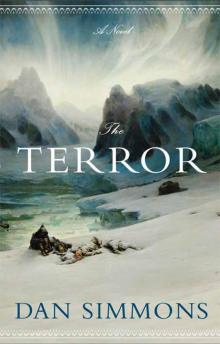 The Terror
The Terror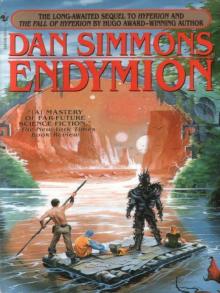 Endymion
Endymion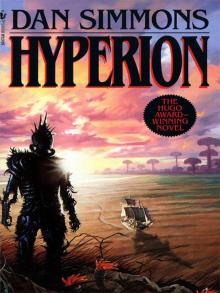 Hyperion
Hyperion The Crook Factory
The Crook Factory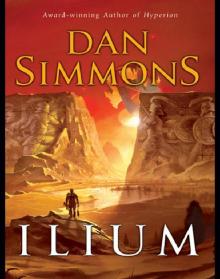 Ilium
Ilium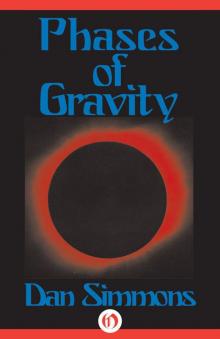 Phases of Gravity
Phases of Gravity Hardcase
Hardcase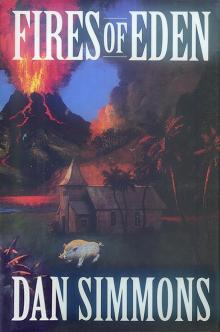 Fires of Eden
Fires of Eden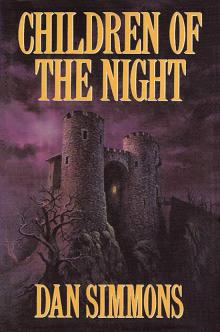 Children of the Night
Children of the Night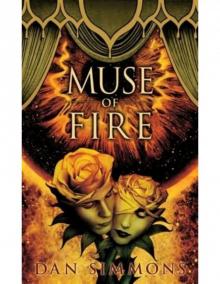 Muse of Fire
Muse of Fire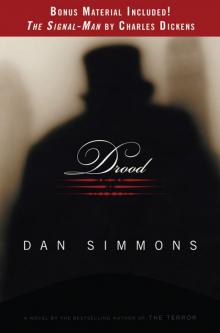 Drood
Drood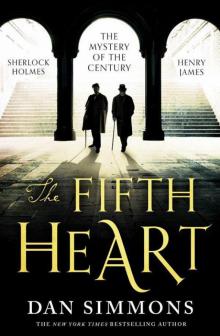 The Fifth Heart
The Fifth Heart Carrion Comfort
Carrion Comfort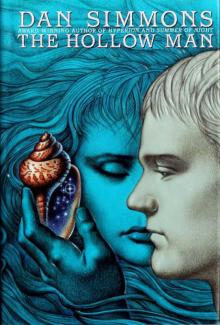 The Hollow Man
The Hollow Man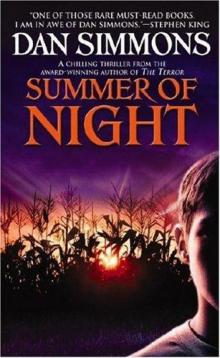 Summer of Night
Summer of Night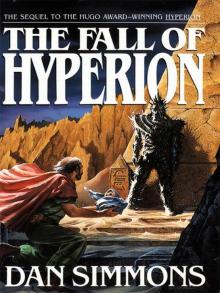 The Fall of Hyperion
The Fall of Hyperion Black Hills
Black Hills A Winter Haunting
A Winter Haunting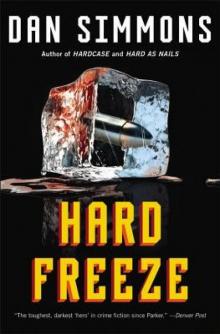 Hard Freeze
Hard Freeze Prayers to Broken Stones
Prayers to Broken Stones Hard as Nails
Hard as Nails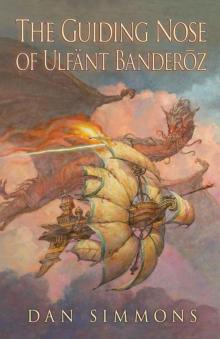 The Guiding Nose of Ulfant Banderoz
The Guiding Nose of Ulfant Banderoz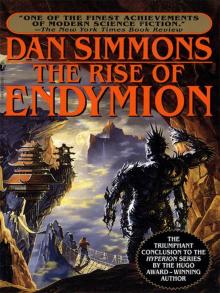 The Rise of Endymion
The Rise of Endymion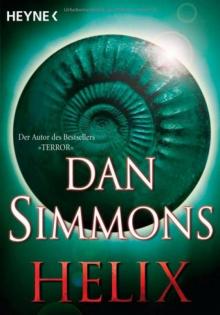 Orphans of the Helix
Orphans of the Helix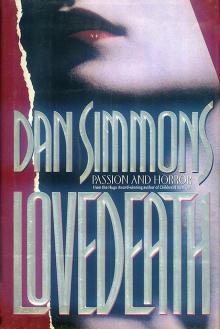 Lovedeath
Lovedeath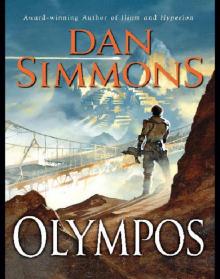 Olympos
Olympos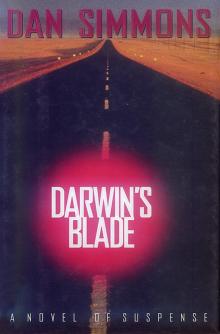 Darwin's Blade
Darwin's Blade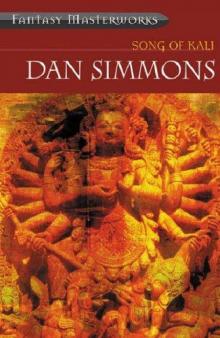 Song of Kali
Song of Kali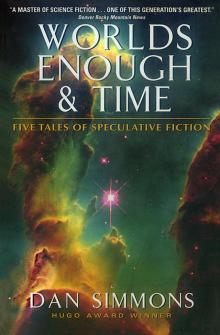 Worlds Enough & Time: Five Tales of Speculative Fiction
Worlds Enough & Time: Five Tales of Speculative Fiction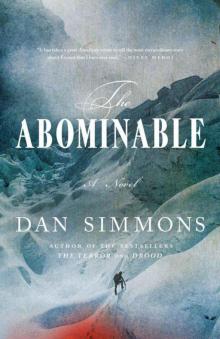 The Abominable
The Abominable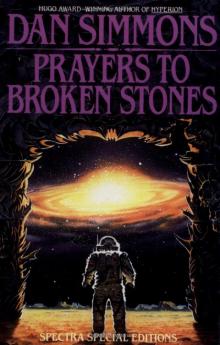 The Death of the Centaur
The Death of the Centaur Hard as Nails jk-3
Hard as Nails jk-3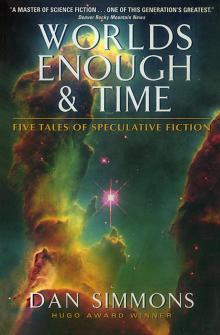 Worlds Enough & Time
Worlds Enough & Time Joe Kurtz Omnibus
Joe Kurtz Omnibus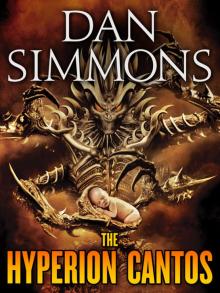 The Hyperion Cantos 4-Book Bundle
The Hyperion Cantos 4-Book Bundle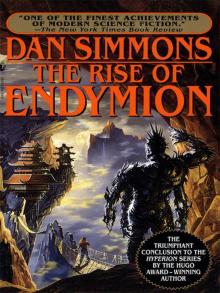 Rise of Endymion
Rise of Endymion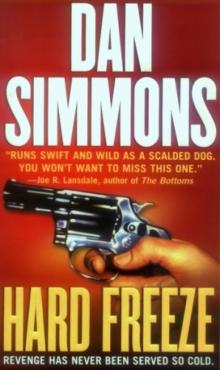 Hard Freeze jk-2
Hard Freeze jk-2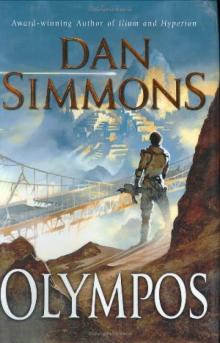 Olympos t-2
Olympos t-2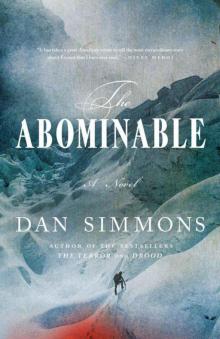 The Abominable: A Novel
The Abominable: A Novel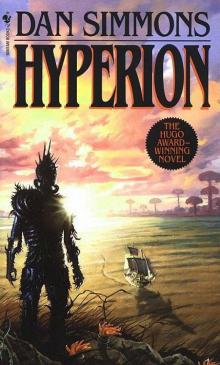 Hyperion h-1
Hyperion h-1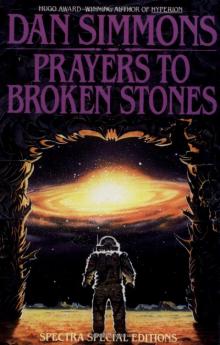 Remembering Siri
Remembering Siri Black Hills: A Novel
Black Hills: A Novel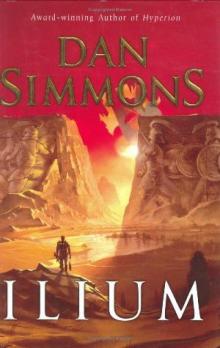 Ilium t-1
Ilium t-1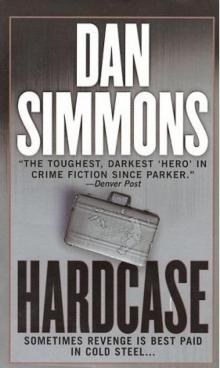 Hardcase jk-1
Hardcase jk-1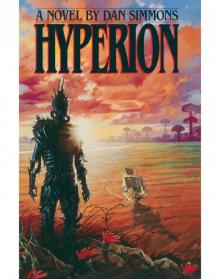 Hyperion 01 - Hyperion
Hyperion 01 - Hyperion